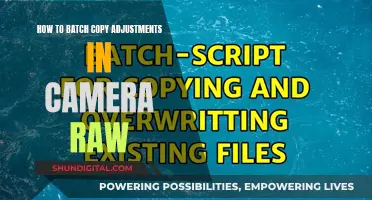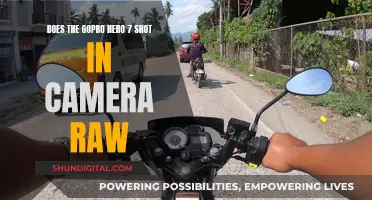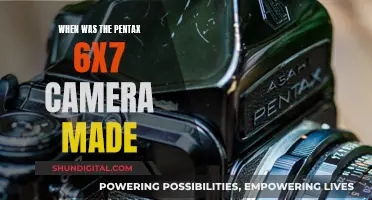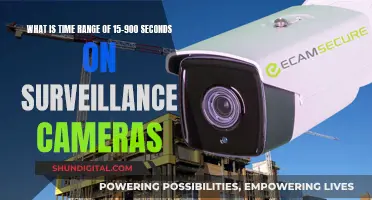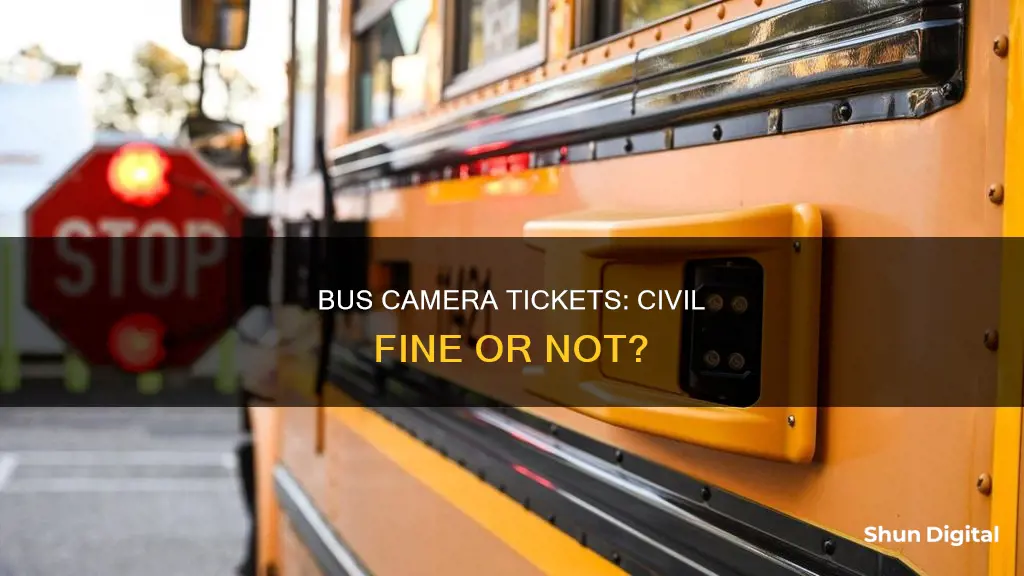
In recent years, school bus camera tickets have become an increasingly common way to enforce traffic laws and improve safety for students. School bus camera systems are designed to detect and prevent drivers from speeding, running red lights, or passing a stopped school bus. When a school bus stops to pick up or drop off students, the bus driver activates the system, which captures images and videos of any vehicles that pass the bus within the enforced zone. These images and videos serve as evidence of the violation and are used to issue tickets and fines to the vehicle owners. The use of school bus camera systems has sparked debates about their legality and effectiveness in improving road safety, with some states treating these violations as civil fines.
What You'll Learn

Are bus camera tickets enforceable?
Bus lane camera tickets are generally enforceable, but this depends on the state or city in which the violation occurred. For example, in New York City, motorists are prohibited from driving in designated bus lanes during applicable hours, and cameras are used to enforce this rule. If a motorist violates the bus lane zone, the camera will take a picture or video, and the motorist will receive a summons in the mail.
Similarly, in Austin, Texas, a school bus safety camera program has been implemented to improve safety for students. Cameras are installed on the exterior of each school bus, and if a vehicle passes the stopped school bus within the enforced zone, the cameras will capture images and video of the violating vehicle, including its license plate and the school bus's extended stop arm. The registered owner of the vehicle will then receive a Notice of Violation, which is considered a civil offense and results in a civil fine.
However, it's important to note that not all states or cities allow the use of bus lane cameras or enforce tickets issued through these means. For example, in Texas, red light and speeding traffic enforcement cameras are prohibited. Therefore, it's essential to check the specific laws and regulations of your state or city to determine the enforceability of bus camera tickets.
While bus camera tickets are generally enforceable in jurisdictions that permit their use, there may be ways to dispute or defend against these tickets. For instance, in some cases, it may be possible to argue that the surveillance system is illegal or that there were insufficient warning signs about the camera's presence. Additionally, if you can prove that you were not the one driving the car at the time of the violation, you may be able to have the ticket dismissed.
Smart Strategies for Carrying Extra Camera Batteries
You may want to see also

What are the fines for a bus camera ticket?
Bus lane camera fines vary depending on location and the number of offenses committed within a 12-month period. In New York City, motorists are fined $50 for a first offense, $100 for a second offense, $150 for a third offense, $200 for a fourth offense, and $250 for each subsequent offense within a 12-month period. These fines are issued when motorists drive in designated bus lanes during restricted hours without meeting certain conditions, such as turning into a driveway or picking up passengers.
In Austin, Texas, a civil fine of $300 is imposed for a school bus violation, which occurs when a motorist passes a stopped school bus with its stop-arm extended and lights flashing. Failure to pay this fine or request an Administrative Adjudication Hearing results in additional fines and penalties.
In Montgomery County, Maryland, the fine for passing a school bus is $250. While this fine is considered steep, it is not tied to any points on the driver's license. Defending such a ticket in court is possible, but the outcome is uncertain due to the inconsistent nature of traffic court judgments.
Dummy Battery Camera: What's the Deal?
You may want to see also

What are the defences for a bus camera ticket?
Bus camera tickets are generally civil penalties issued to the registered owner of the vehicle. These tickets can be quite expensive, but since they are non-moving violations, they are not reported to insurance companies and, therefore, do not increase insurance rates. Here are some defences for a bus camera ticket:
Defences for a Bus Camera Ticket
- Check the video footage: Review the video footage and images provided as evidence with the citation. Confirm if the vehicle in the footage indeed has the same license plate number and vehicle make and model as your car. Also, check if the footage shows your vehicle approaching and passing the bus.
- Violation of Code Ordinances: Review the specific code and local ordinances cited in the citation. You may not have violated the code if there were no passengers getting on or off the bus when you passed, or if there was a median separating the lanes.
- Obstructed Field of Vision: If your view of the bus and/or the stop arm was obstructed by a larger vehicle, this could be a valid defence. This obstruction should be evident in the citation video.
- Hazardous Road Conditions: If there were severe weather conditions, such as ice, snow, or dense fog, that made it unsafe to come to a complete stop, this could be a valid reason for disputing the ticket.
- Incorrect Information: Check the citation for any errors or incorrect information, such as the wrong name, vehicle details, or photos. If there are any discrepancies, this could be grounds for dismissal.
- Late Delivery of Citation: Most states and municipalities require that the citation be issued and delivered within a specified time frame, typically 30 or 60 days from the date of the incident. If you receive the citation after this period, you may have grounds for dismissal.
- Not the Vehicle Owner: If you are not the registered owner of the vehicle at the time of the offence, you may be able to dispute the ticket. Provide documentation, such as a bill of sale or transfer of ownership paperwork, to support your claim.
- Vehicle or License Plate Issues: If your vehicle or license plate was stolen and you have a corresponding police report, or if you can prove that you rented or loaned your car to someone else at the time of the violation, these could be valid defences.
- Mechanical or Medical Emergency: If you can provide evidence of a sudden mechanical breakdown or medical emergency that required you to stop or park in the bus lane, this could be a valid reason for disputing the ticket.
- Roadway Conditions: If there were conditions on the roadway that prevented you from making a right turn or forced you to enter and remain in the bus lane, this could be a valid defence. For example, if it was not safe or legal to make the turn, or if there was an obstruction in the road.
The Evolution of Cameras: Capturing Light and Moments
You may want to see also

How do I pay a bus camera fine?
Bus camera fines are considered civil penalties, and in some places, such as Texas, they are not mandatory to pay. However, if you do wish to pay a bus camera fine, there are a few ways to go about it. The process may vary depending on your location, so it is essential to check the specific rules and regulations for your area. Here is a general overview of the steps you can take to pay a bus camera fine:
- Understanding the Fine: Bus camera fines are typically issued when a vehicle is caught on camera violating traffic laws, such as speeding in a school zone or illegally passing a stopped school bus. The fine is usually sent to the owner of the vehicle and is treated similarly to a parking ticket.
- Review the Evidence: In most cases, you will have the option to review the evidence against you. You can usually view pictures and videos of the alleged violation by visiting a designated website or going to a public location, such as a library or court lobby.
- Payment Options: The ticket or notice you receive should provide information on how to pay the fine. In many cases, you may have the option to pay online, by mail, or in person. It is important to pay attention to the deadline for payment to avoid further consequences.
- Pleading Guilty or No Contest: When paying the fine, you may be required to plead guilty or no contest to the violation. Pleading guilty means admitting to the violation, while pleading no contest means you are not admitting guilt but also not challenging the charge. Both pleas will result in the same penalty.
- Consider Your Ability to Pay: If you cannot afford to pay the fine, you may be able to request more time, set up a payment plan, or perform community service instead. You may need to answer questions about your financial situation and provide justification for your inability to pay.
- Traffic School: Depending on your eligibility and the rules in your area, you may have the option to attend traffic school instead of paying the fine. This option can help you avoid points on your driving record, which can impact your insurance rates.
- Fix-It Tickets: If you receive a fix-it ticket, which means the violation can be corrected, you will need to pay the fine and provide proof that you have fixed the issue. This could involve submitting a signed certificate of correction.
It is important to note that the above steps are general guidelines, and the specific process may vary depending on your location. Always refer to the information provided on your ticket, notice from the court, or the relevant local government website for the most accurate and up-to-date payment instructions. Additionally, if you choose not to pay the fine, consult a legal professional to understand the potential consequences and your legal rights.
The Evolution of Red Cameras: Where Are They Made?
You may want to see also

Do camera tickets impact your insurance?
Bus camera tickets are considered civil fines and are not reported on a person's driving record. They are treated as non-moving violations, similar to parking tickets, and do not directly impact insurance rates. However, this may vary depending on the state and insurer.
In most states, camera tickets for speeding or running a red light are treated as non-moving violations, and therefore do not increase insurance rates. These types of tickets are usually not recorded on a person's driving record. However, there are exceptions, such as in Arizona, California, and Oregon, where camera tickets are treated as moving violations and can result in points on a person's driver's license and increases in insurance rates.
The main penalty for bus camera tickets is the fine that is issued. In some cases, failure to pay the fine or request a hearing within a specified time frame may result in additional fines, penalties, and costs. It's important to note that there is no maximum number of tickets that can be issued by these cameras, and multiple violations can result in a greater financial penalty.
While bus camera tickets themselves may not directly affect insurance rates, they can still have financial implications for the vehicle owner. It's important to be aware of the rules and regulations regarding bus lanes to avoid receiving these tickets.
Samsung Cameras: Can You Capture Images in RAW?
You may want to see also
Frequently asked questions
A bus camera ticket is a fine issued to a motorist who has been caught on camera violating traffic laws. This could include speeding, running red lights, or passing a stopped school bus.
Yes, bus camera tickets are considered civil fines and are treated similarly to parking tickets. They do not go on your driving record and do not impact your insurance rates. However, failure to pay the fine may result in additional penalties and collection actions.
If you don't pay your bus camera ticket, you may face additional fines, penalties, and costs. Additionally, you may be unable to renew your vehicle's registration or tabs until the fine is paid. In some cases, your vehicle may be booted or towed for failure to pay outstanding fines.



